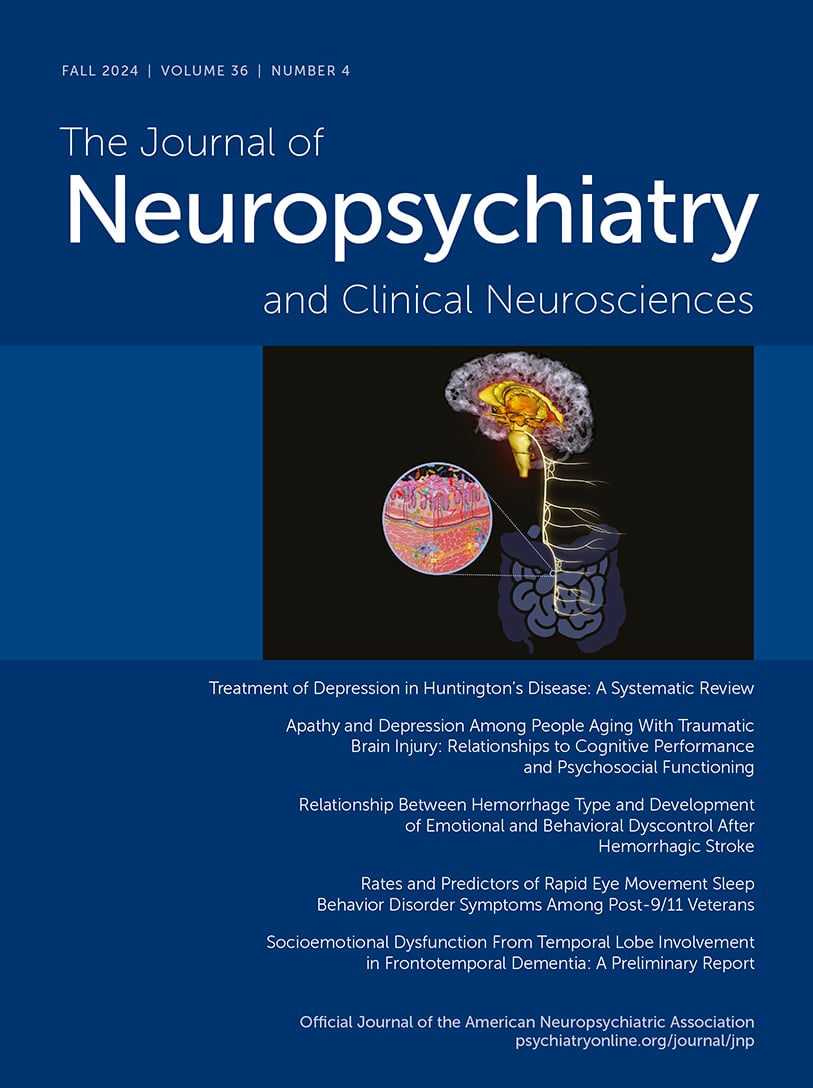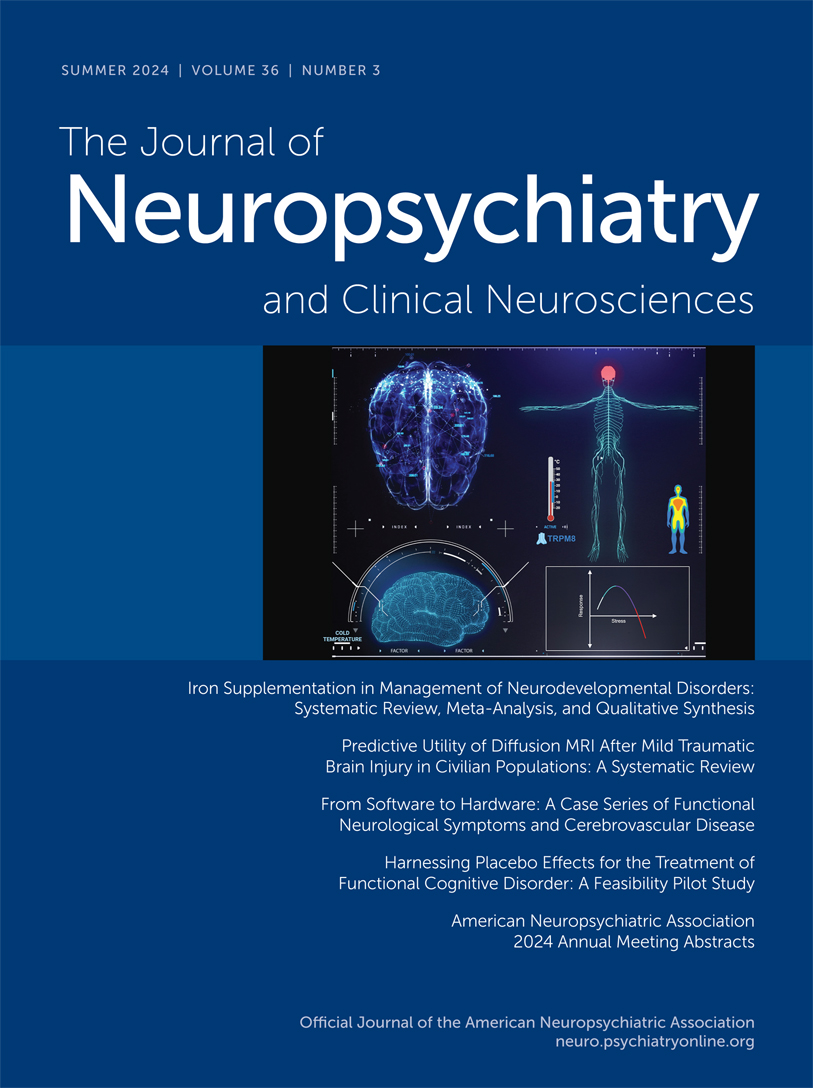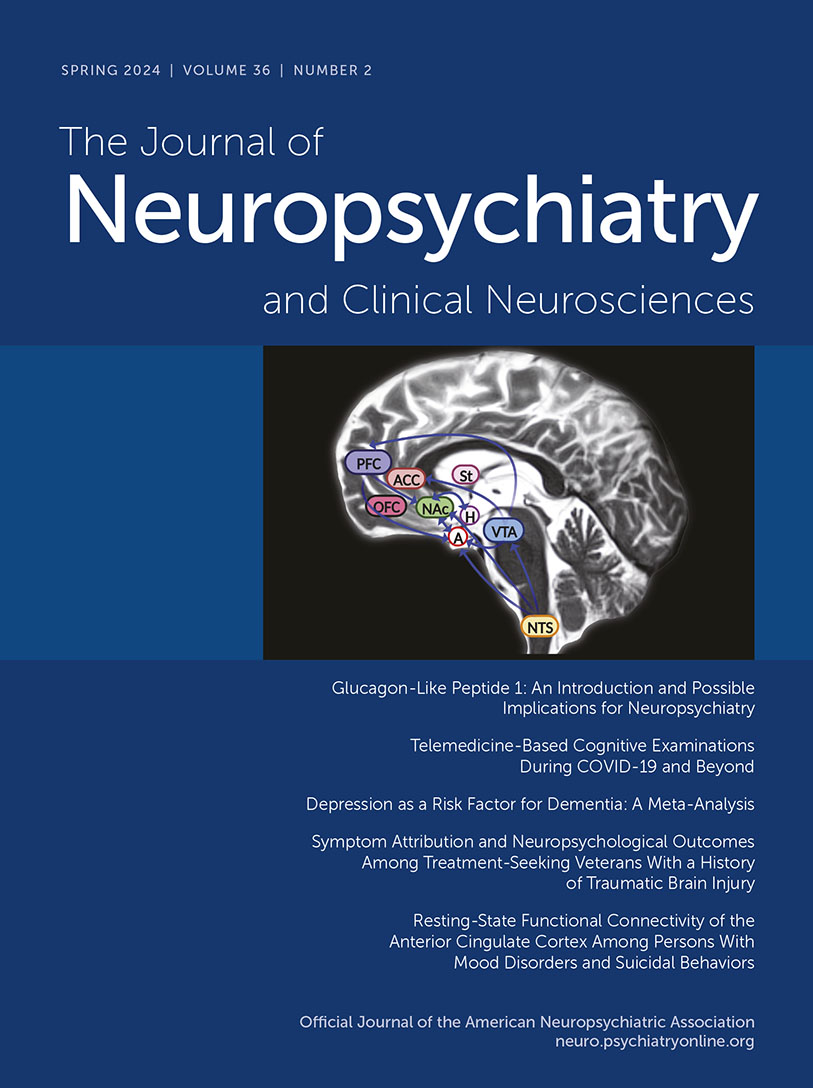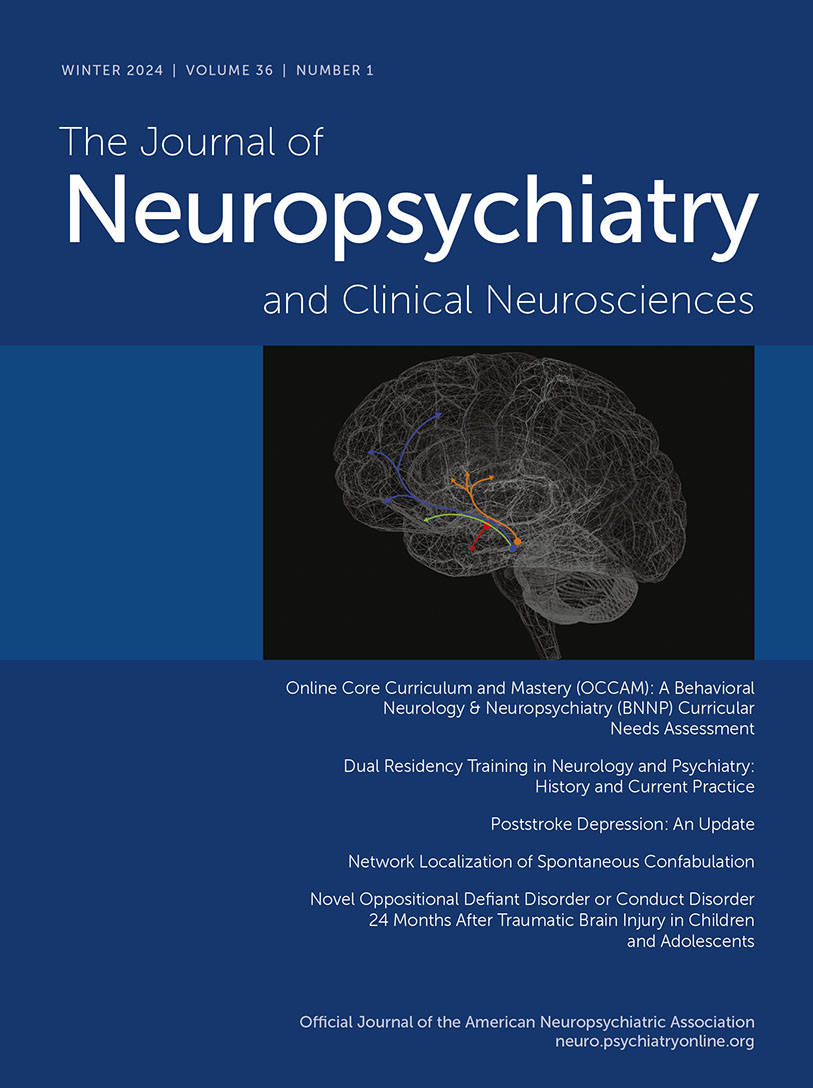The Journal of Neuropsychiatry and Clinical Neurosciences
- Volume 26
- Number 3
- July 2014
Letters
Windows to the Brain
Publication date: 01 July 2014
Pagesiv–195Advancement in research related to the neuroscience of psychotherapy for posttraumatic stress disorder (PTSD) is in the early stages. Although mechanisms of recovery have been postulated from existing psychological theories, relatively little is confirmed ...
https://doi.org/10.1176/appi.neuropsych.260301Special Articles
Publication date: 01 July 2014
Pages196–213A commonality of patients with major psychiatric disorders is their propensity to make poor decisions, which is intimately related to poor real-life outcomes. The authors reviewed the literature on decision making as applied to severe psychiatric ...
https://doi.org/10.1176/appi.neuropsych.12110268Regular Articles
Publication date: 01 July 2014
Pages214–220The authors conducted a retrospective, cross-sectional analysis comparing baseline neuropsychiatric and other clinical characteristics in 199 expert-diagnosed mild and moderate Alzheimer’s dementia patients participating in industry-sponsored clinical ...
https://doi.org/10.1176/appi.neuropsych.12120402Publication date: 01 July 2014
Pages221–226Twenty consecutive parkinsonian patients who underwent bilateral pallidal stimulation were assessed 3 months prior to surgery and at both 3 and 6 months after surgery, using psychiatric, neuropsychological, and motor scales. The main finding was the ...
https://doi.org/10.1176/appi.neuropsych.13020032Skin Conductance Levels May Reflect Emotional Blunting in Behavioral Variant Frontotemporal Dementia
Publication date: 01 July 2014
Pages227–232The authors evaluated skin conductance as a measure of emotional blunting among 10 patients with behavioral variant frontotemporal dementia compared with 10 with Alzheimer’s disease and 14 healthy control subjects. It was concluded that low skin ...
https://doi.org/10.1176/appi.neuropsych.12110332Publication date: 01 July 2014
Pages233–240This study characterizes psychiatric manifestations as a primary symptom of neurosyphilis (NS). Fifty-two of the 169 NS patients presented with psychiatric manifestations, many patients had characteristics of more than one syndrome, including cognitive ...
https://doi.org/10.1176/appi.neuropsych.13030064Publication date: 01 July 2014
Pages241–248The aim of the present study was to characterize the neurophysiological profile of cognitive impairment associated with patients with chronic alcoholic and nonalcoholic liver disease. The authors evaluated 43 patients with cirrhotic liver disease: 19 ...
https://doi.org/10.1176/appi.neuropsych.12040091Publication date: 01 July 2014
Pages249–257The role of cognitive function in quality of life is important among the growing numbers of survivors after cancer treatment. The authors conducted a prospective cohort study of 106 adults evaluated 5.6 months (median) after diagnosis and 77 of 83 (93%) ...
https://doi.org/10.1176/appi.neuropsych.12070177Clinical and Research Reports
Publication date: 01 July 2014
Pages258–261The neuropsychiatry of kissing in frontotemporal dementia was investigated. This preliminary report illustrates “social kissing” in behavioral variant frontotemporal dementia and may prompt further investigations into the mechanisms of disturbed kissing ...
https://doi.org/10.1176/appi.neuropsych.13060139Publication date: 01 July 2014
Pages262–270Serotonergic dysfunctions are implicated in conduct disorder, impulsivity, and aggression. Early adverse experiences increase the risk for these behaviors in adolescents. The authors investigated serotonergic activity in one adolescent male who ...
https://doi.org/10.1176/appi.neuropsych.13060138Publication date: 01 July 2014
Pages271–273Two cases of psychosis after upper respiratory infection were reported. New mental illness among children was substantiated after analyzing the cause of psychosis during the past 10 years of practice. It is confirmed that there is an association between ...
https://doi.org/10.1176/appi.neuropsych.13030047Past Issues
View Issues Archive
Vol. 36 | No. 4

Vol. 36 | No. 3

Vol. 36 | No. 2
